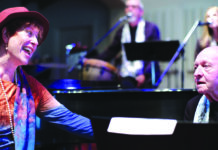According to studies, learning simple relaxation techniques can boost the body’s immune response and provide a faster rate of healing. When men scheduled for stress-inducing prostate cancer surgery employed deep breathing and visualization, they reaped big benefits.
Surgery is stressful for the mind and body. Worry and anxiety can slow the immune system’s efforts to mend incisions. Furthermore, the physical impact of surgery can boost inflammation, which inhibits healing. That’s where relaxation comes in. Calming down the system reduces such counterproductive side effects. Begin by getting a good night’s sleep the night before.
There’s nothing especially difficult about the two techniques the men in the study used. Practice them for a week or two before an operation, even if the surgery is nothing more than a root canal:
- Breathing deeply: Inhale slowly through the nose so that the belly, not the chest, expands. Pause, then exhale slowly. Repeat several times.
- Guided visualization: Use all of the senses to imagine being in a serene place, like a quiet mountaintop or on a warm, sandy beach. It provides a stress-melting mental vacation.
Relaxation techniques need not end after an operation, however. Studies show that meditation can actually alter the brain. First, regular meditation gradually rewires the brain. Over time, it produces high-frequency brain waves that increase the ability to focus, learn and remember. Studies of Buddhist monks have found that daily meditation, permanently increases brain wave activity, which, in turn, increases the variability of heart rate, which has positive health effects.
Meditation also helps the brain stay younger longer by ramping up cell production. A recent study found that extensive meditation practice slows age-related thinning of the frontal cortex. The longer one meditates, the thicker the cortex becomes.
A surgical operation can be nerve-wracking, but so can day-to-day life. Relaxation techniques may be just what the doctor ordered.













